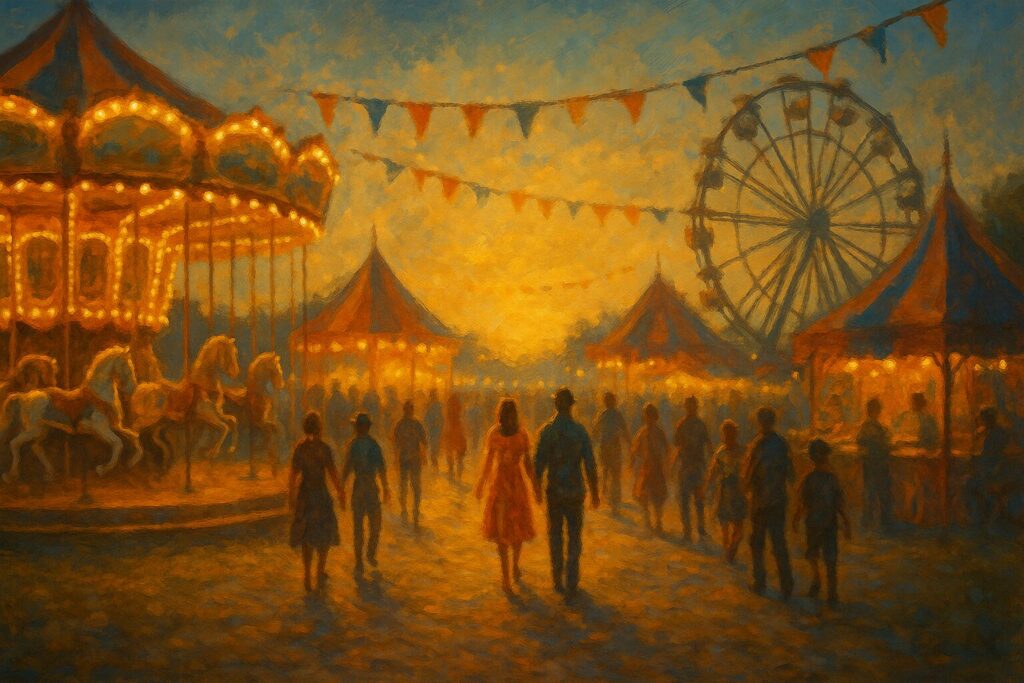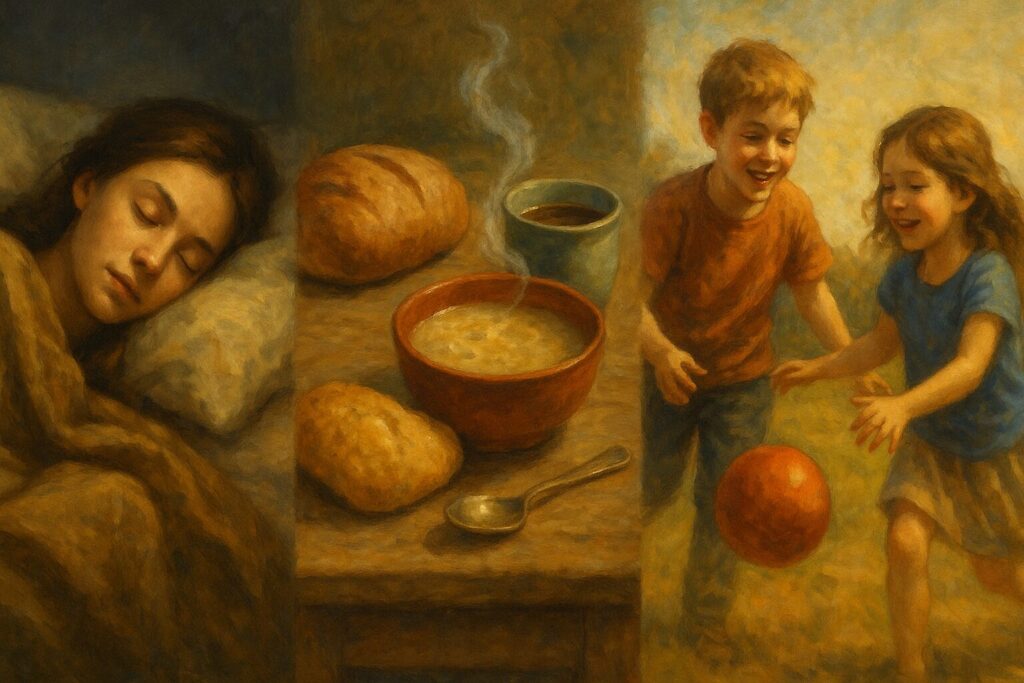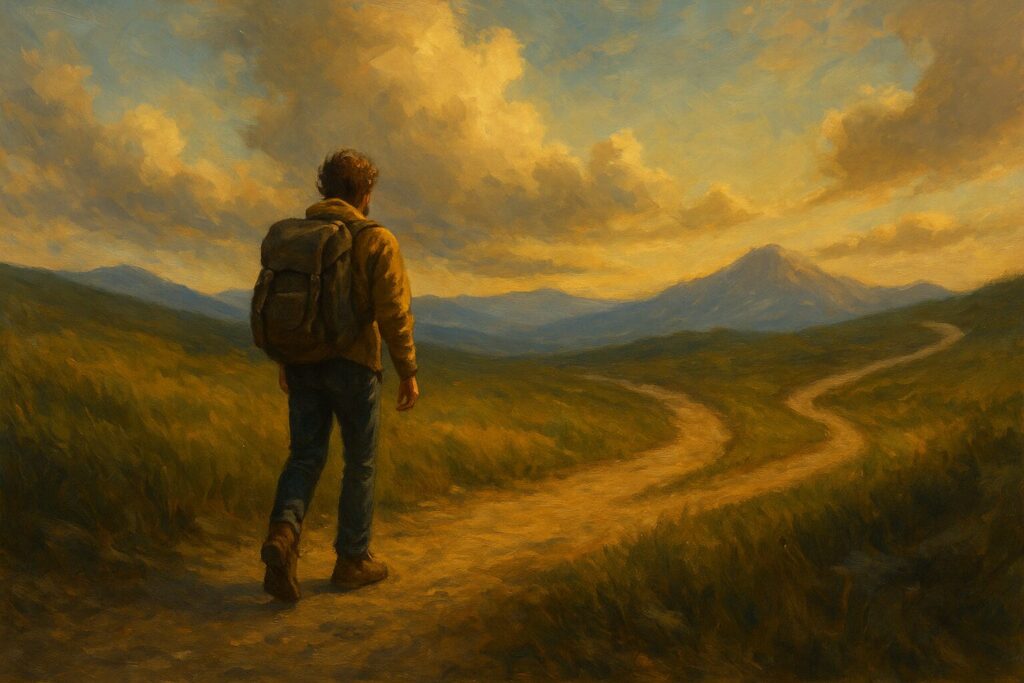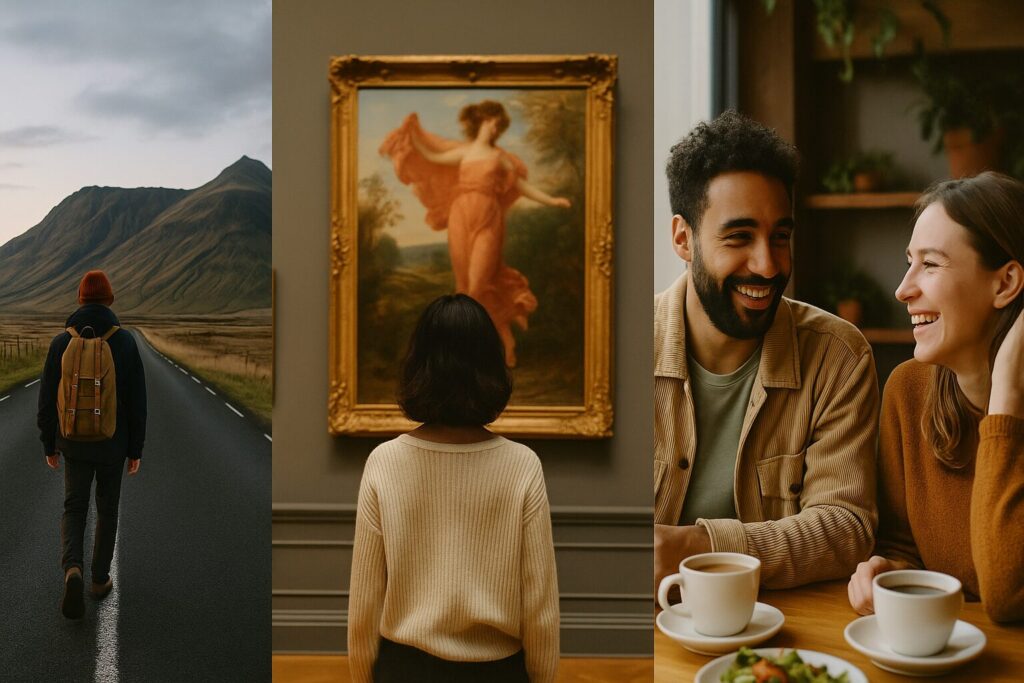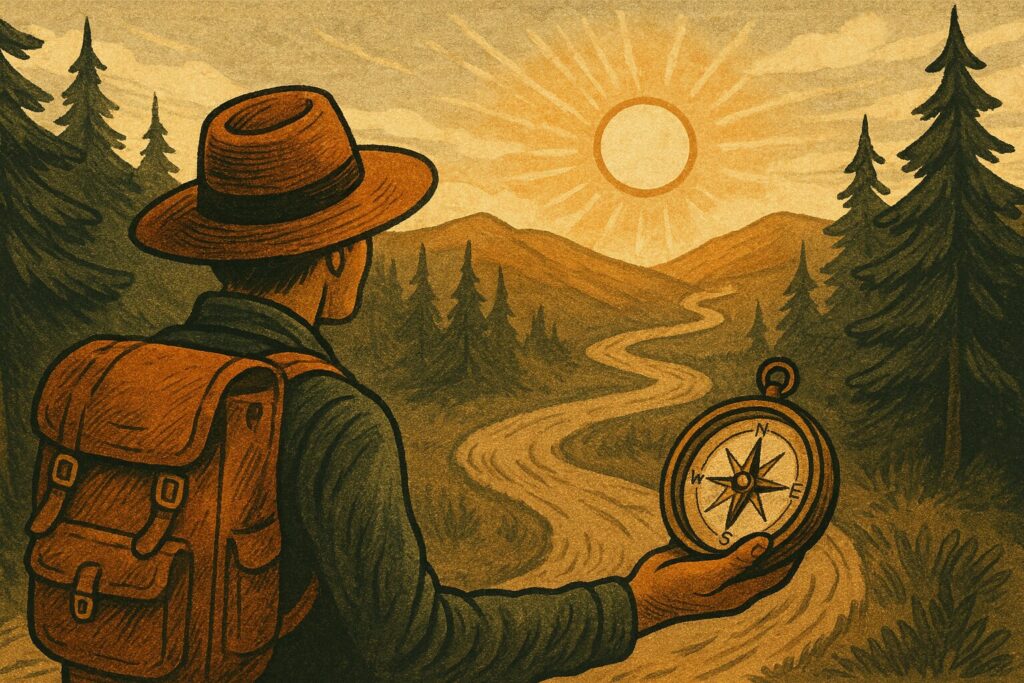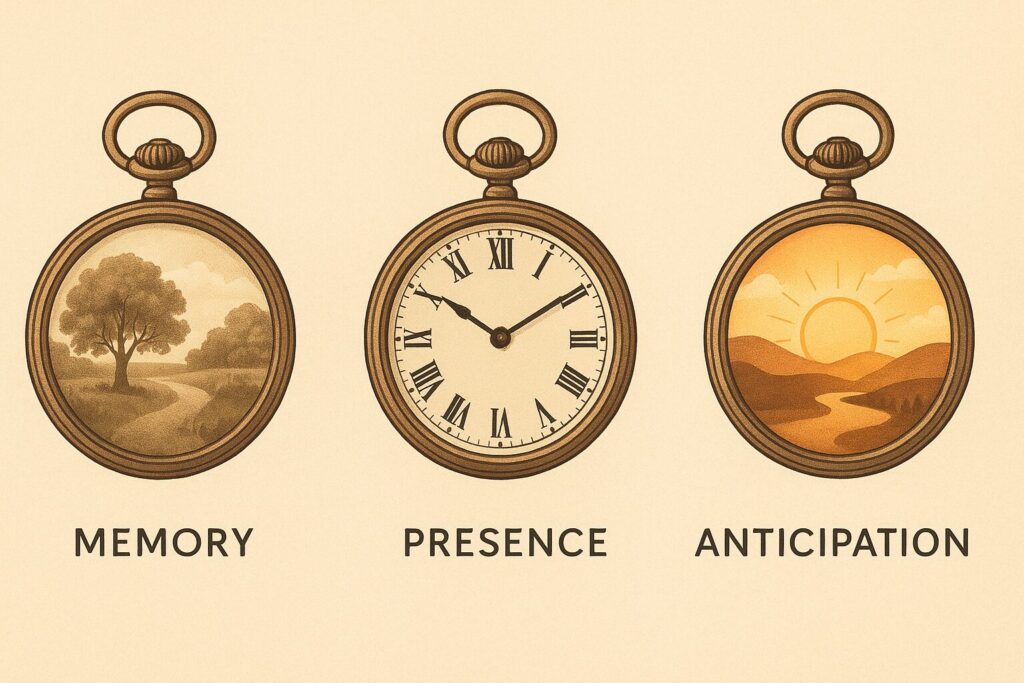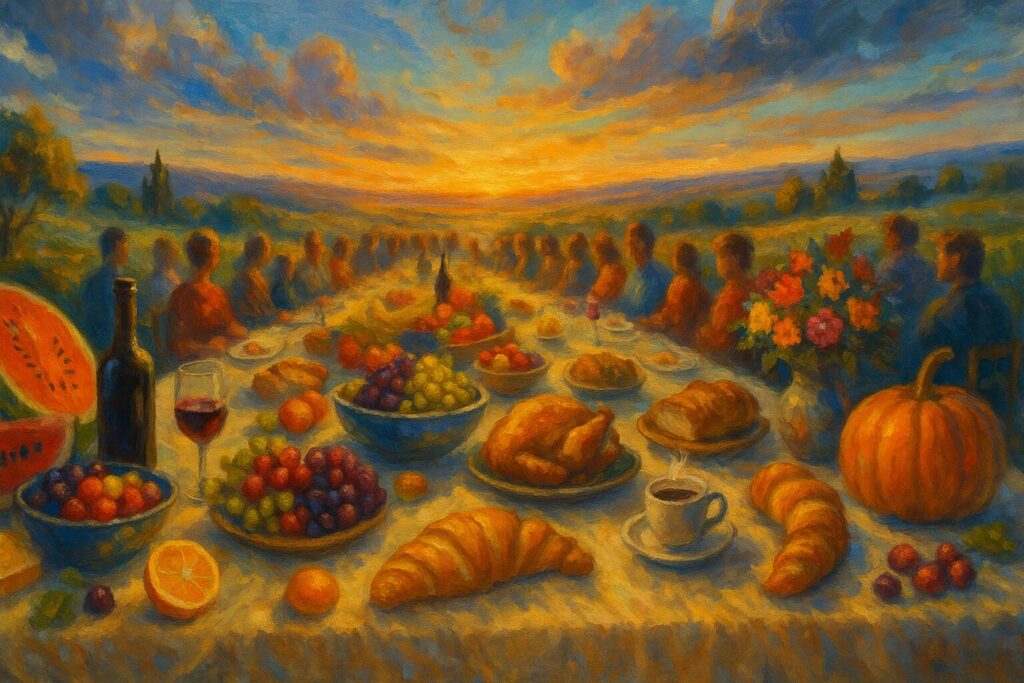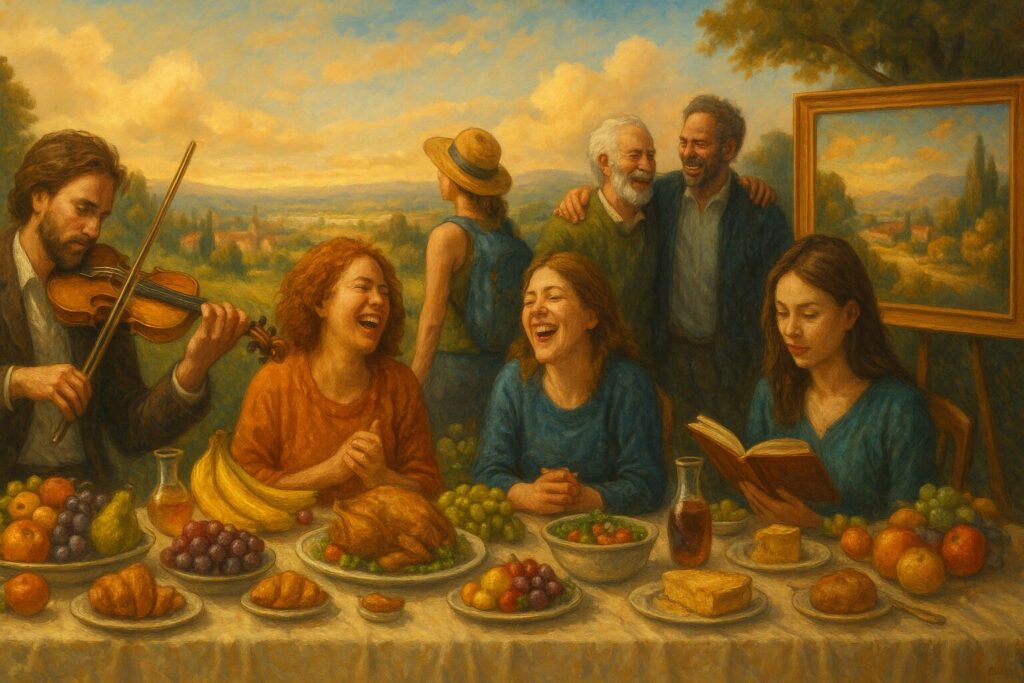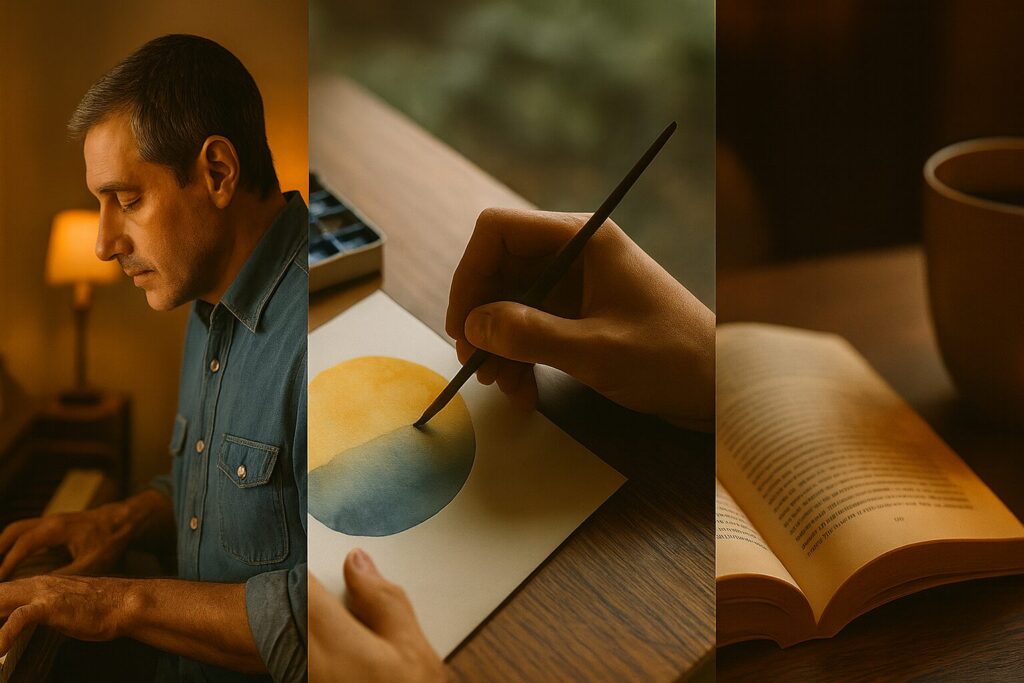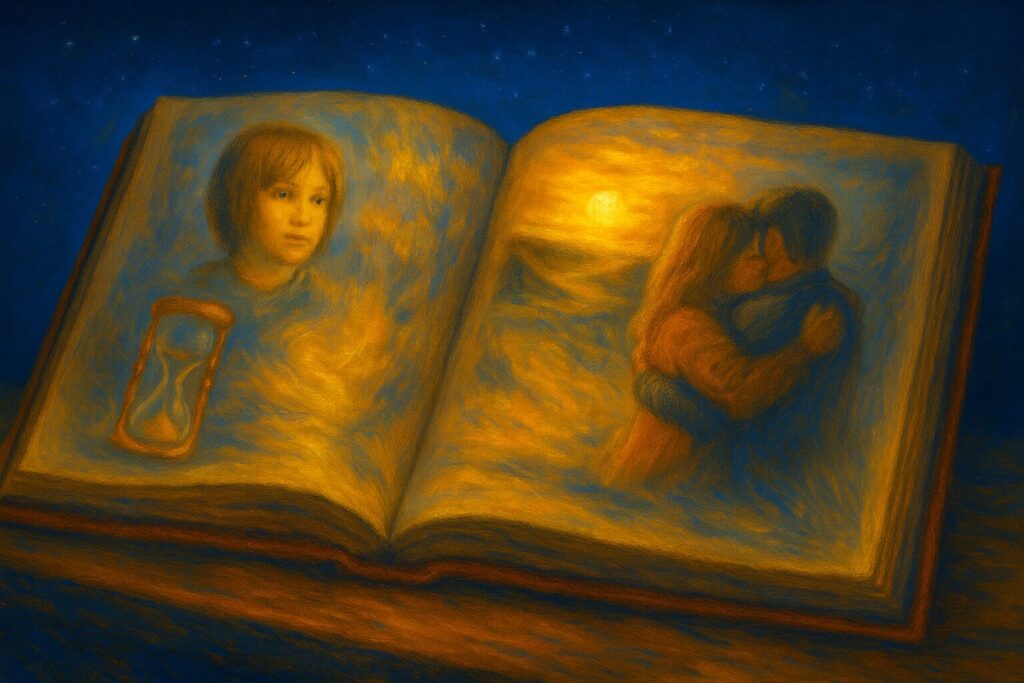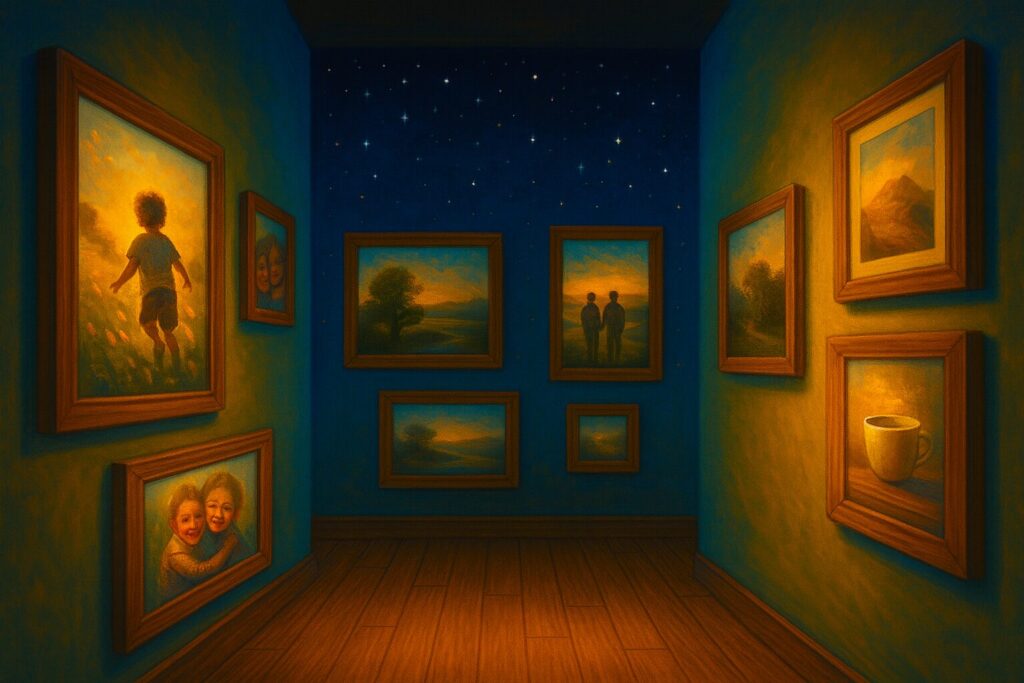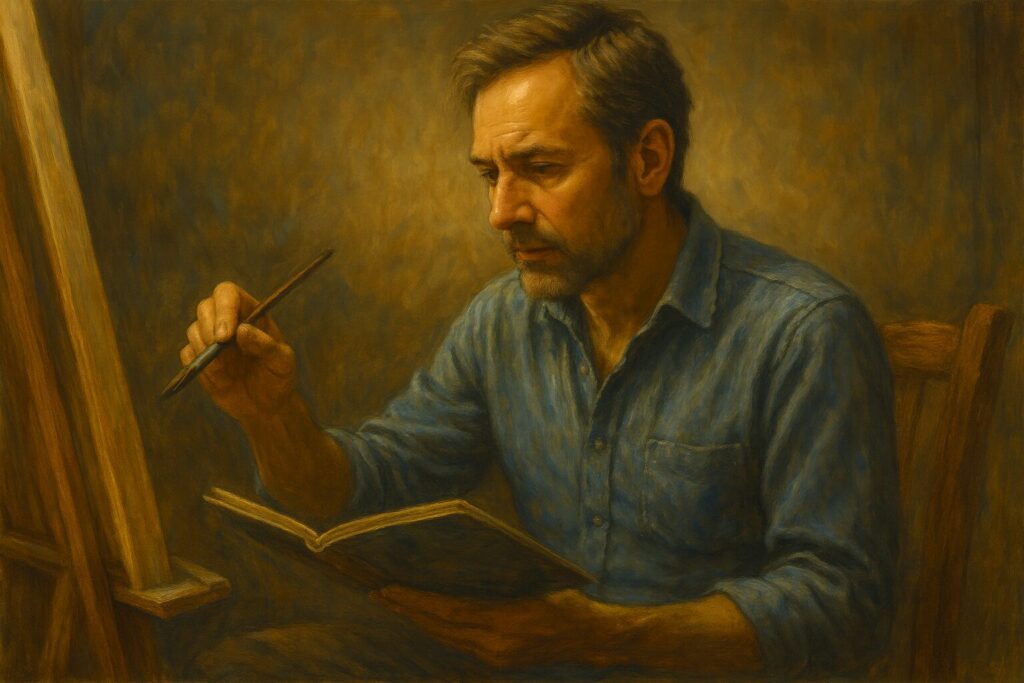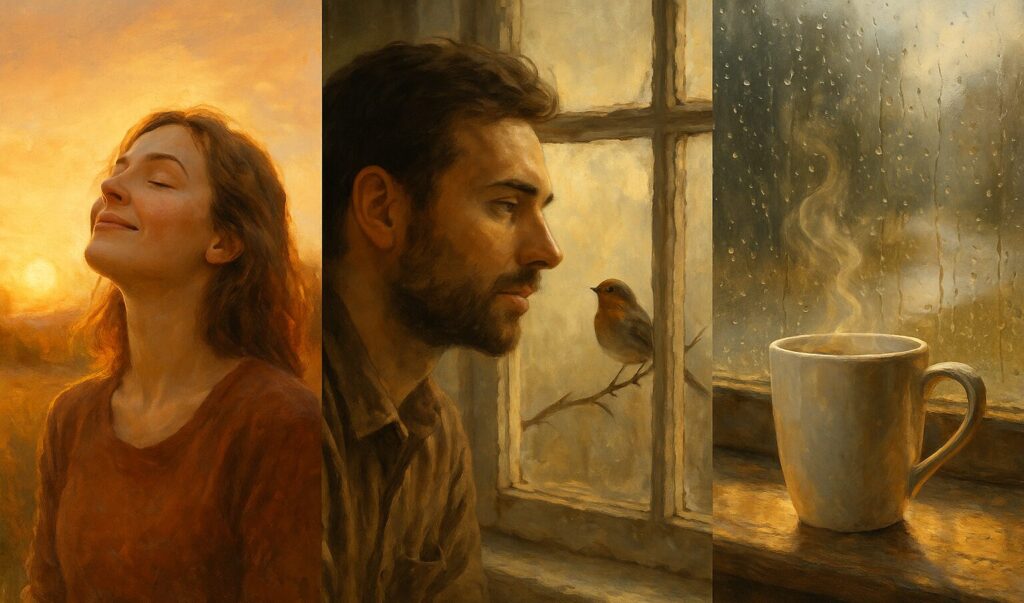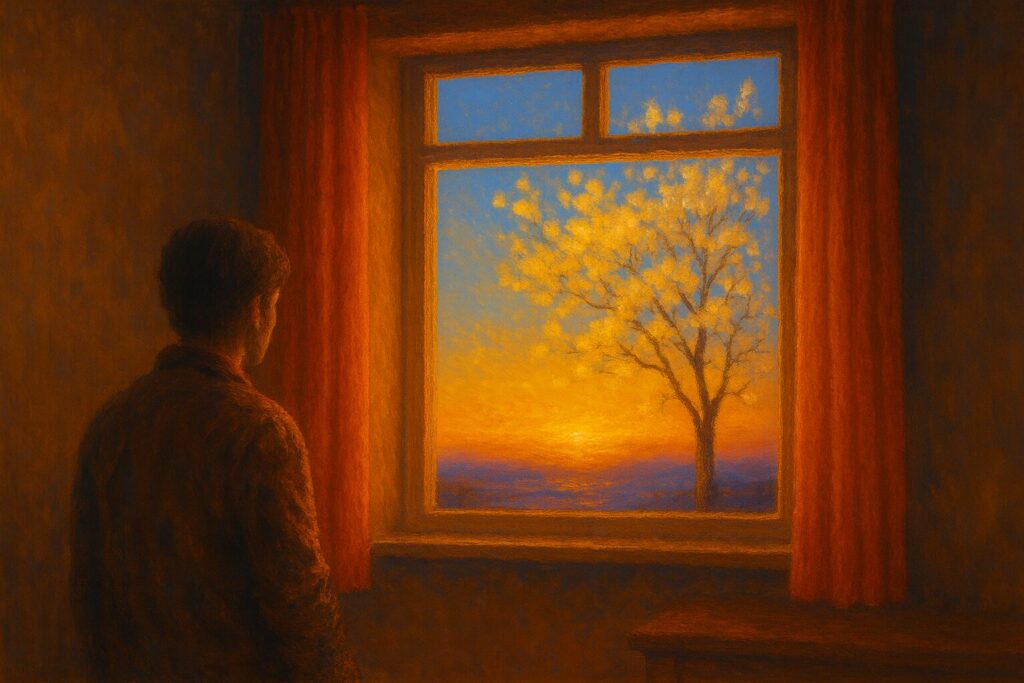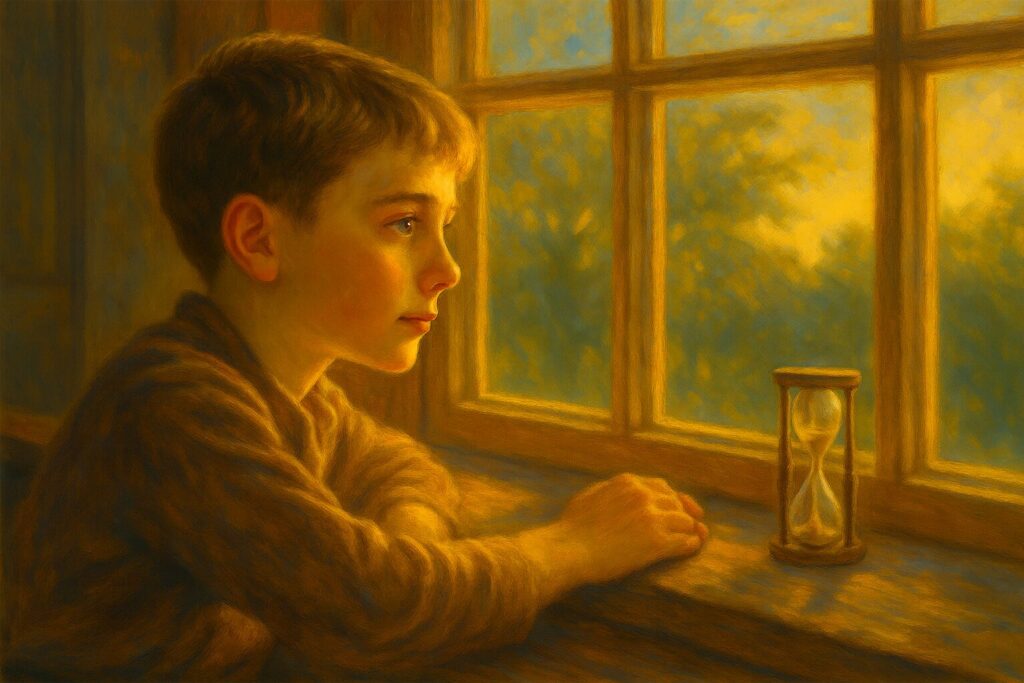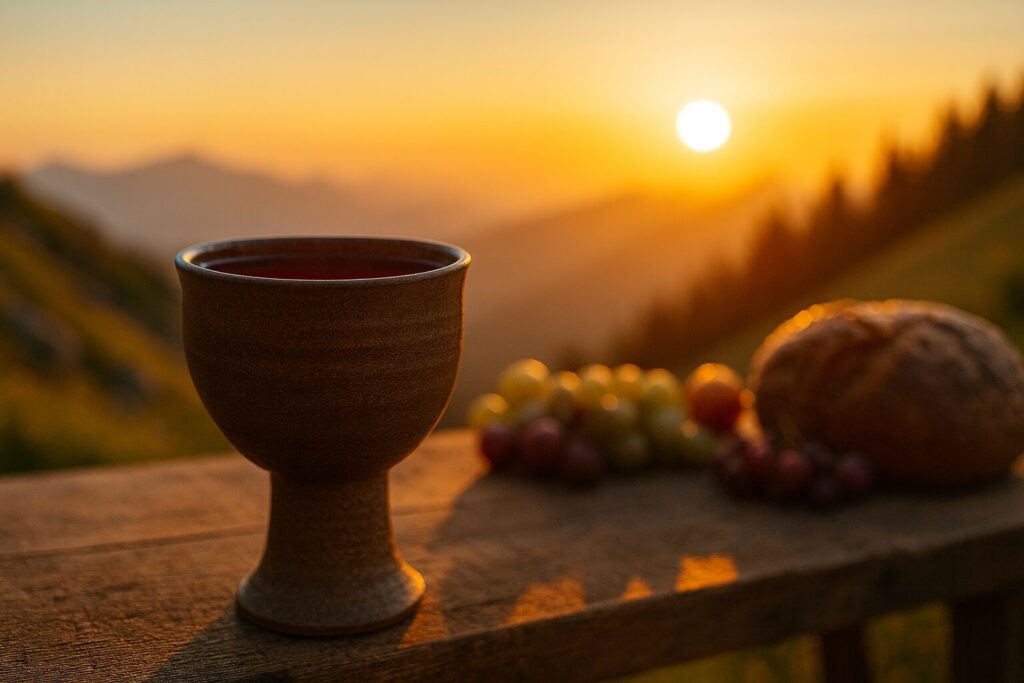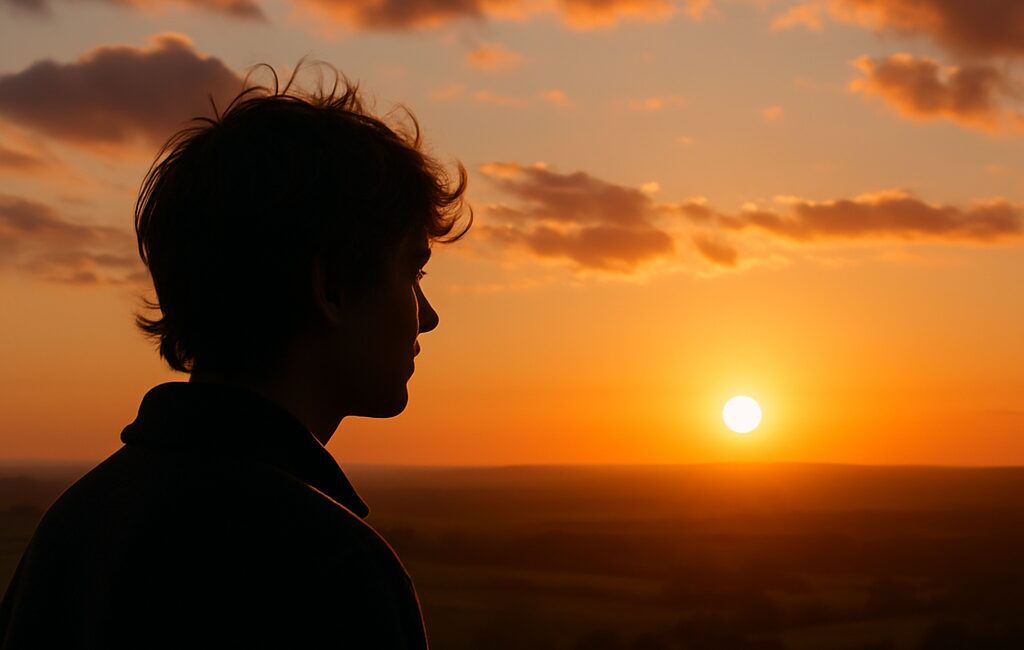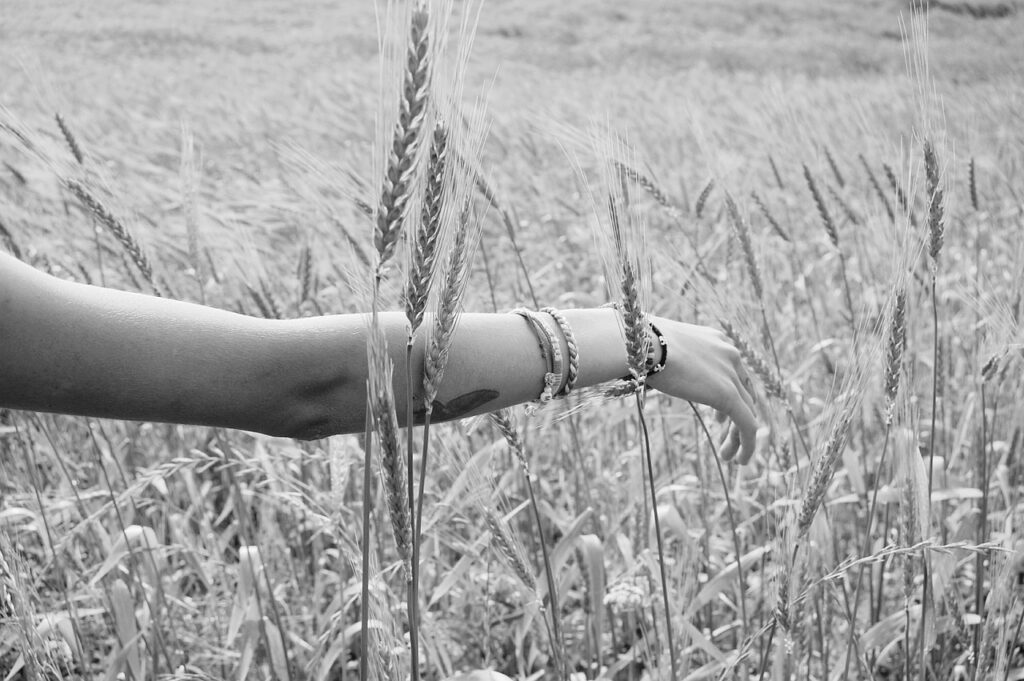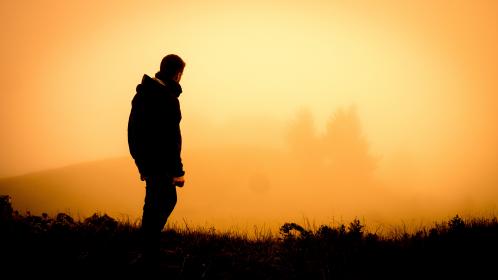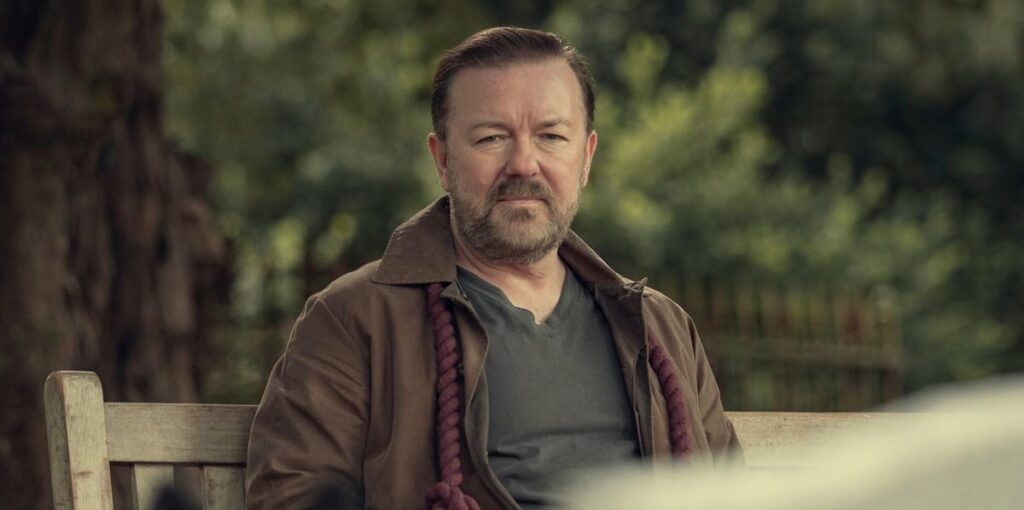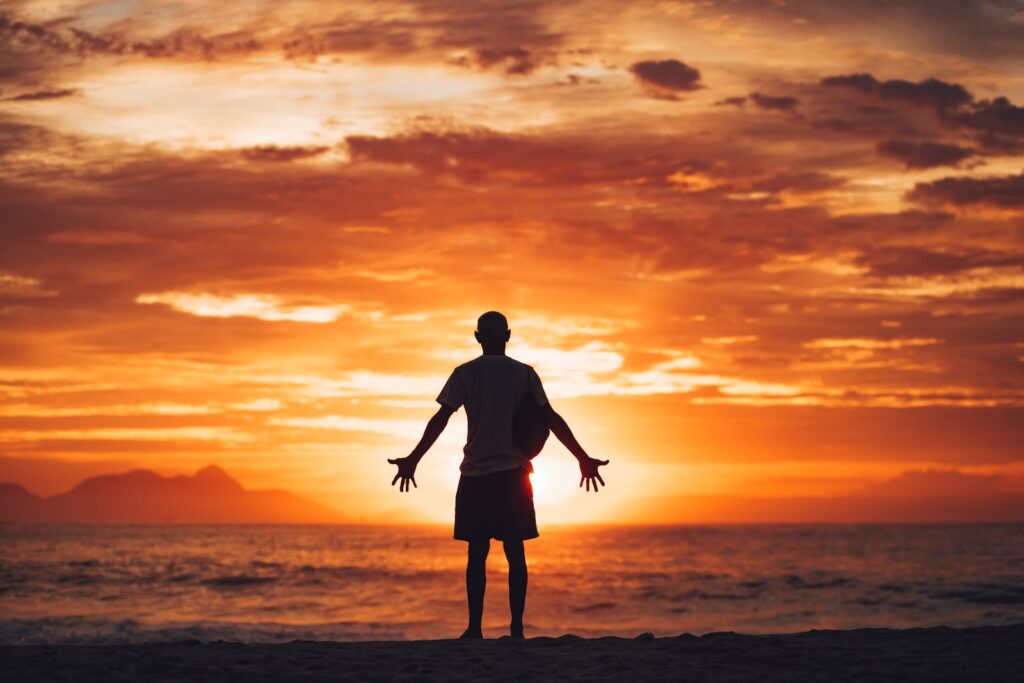Life Experiences
Appreciation is not constant. No one can live permanently awestruck, permanently grateful, permanently at peace. There are storms. There are losses. There are nights when life feels unbearable, mornings when nothing glitters, afternoons when even endurance feels impossible. But the beauty of perspective is that it does not need to be constant to matter. It only needs to be returned to.
A Carnival of Wonders
Life is not one thing. It is a bounty of human creation, a call to adventure, and a tapestry of everyday delights. To be alive is to have access to all of it — to wander the carnival, to answer the invitation, to taste the simple joys that thread through our days.
A Handful of Everyday Wonders
Sleep restores us and gives us the bonus world of dreams. Food sustains us and turns survival into art. Play lightens us, liberates us, and connects us back to wonder. None of these are exotic. They’re woven into ordinary days. And yet, when we pay attention, they reveal the extraordinariness of being alive.
Becoming Ourselves
We arrive in the world raw, unformed, bewildered. A baby doesn’t know who it is. A child doesn’t yet know what will matter. Even in youth, identity feels like mist: here for a moment, then shifting. And yet, across the decades, something steady persists — the sense that we are slowly becoming. We are sculptors shaping marble we can’t fully see, discovering the figure only as we chip away.
Sparks of Life
Travel opens us. Art awakens us. Companionship deepens us. Each is small enough to weave into everyday life. Together, they remind us that living fully and savoring deeply are not distant goals but daily practices.
The Joy of a Life Well-Oriented
Life is brief. Time is precious. Without orientation, we risk wasting it on false compasses and empty pursuits. But with orientation, every day can contribute to fulfillment.
The Treasures of Time
Memory roots us in story. Presence awakens us to wonder. Anticipation draws us forward in hope. Together, they make time not an enemy but a gift. We are the rare creatures who get to live across all three dimensions at once, carrying the past, inhabiting the present, and leaning toward the future.
A Feast of Living
What a banquet we’ve been invited to. The table stretches endlessly: oceans shimmering with silver fish, forests brimming with birdsong, deserts whispering their secrets in shifting dunes. Look closer, and the spread is more intimate still: a ripe peach, a handwritten letter, the comfort of worn sheets after a long day. Life is a feast, and we are the guests.
Life’s Feast of Experience
Life is not stingy. It lays out a table so full of flavors, colors, sounds, and sensations that one lifetime is not enough to sample them all. We may struggle, we may suffer, but even in hardship, the world keeps handing us delights.
When Gratitude Isn’t Enough
Gratitude is powerful. But it is not always enough. It cannot erase grief, nor should it try. True strength is knowing when to grieve and when to give thanks. True perspective is allowing both to matter.
Soul Therapy
Life wears us thin. Worries fray us, routines numb us, losses bruise us. Left alone with only pressure and demand, we shatter. But we are not left alone. Human beings, from the dawn of history, have discovered a thousand ways to restore ourselves — ways of tending our soul.
The Triumph of Our Story
It is one thing to exist. It is another to know that our existence has unfolded as a story — unique, unrepeatable, ours alone. No one else will ever live your exact combination of days. No one else will walk through the same blend of joys, sorrows, loves, losses, fascinations, and triumphs. Billions have lived before you, billions live now, and billions will come after. Yet your story is singular.
The Preciousness of Our Personal Taste of Life
Each of us carries an invisible treasury — the moments, memories, and meanings that belong to us alone. Even if no one else knows them, even if no history book records them, they shine with value because we experienced them.
The Joy of Creation
Most creatures survive by instinct. They hunt, nest, migrate, reproduce. Humans do these things too — but then we do something extra. We make.
Aesthetic Experience Triad
There are moments when life feels electric. A song swells, a sunset flares, a child laughs — and suddenly you feel it: the tingle of meaning. It’s not just pleasure. It’s not even quite happiness. It’s the sense that life, in this moment, is precious.
Aesthetic Experience as a Reason for Living
We’ve all had days when life technically continued but felt empty, thin, almost pointless. Food was on the table, but appetite was gone. Time passed, but meaning was missing. In those seasons, we need more than existence. We need a reason to stay. For human beings, that reason often comes through aesthetic experience — the moments when life feels not only bearable but luminous, charged with significance.
Through a Child’s Eyes
What if life ended at twelve, or seventeen, as it did for Sam Berns, who lived bravely with progeria and died a teenager? In that case, the moments of youth — the crushes, the games, the discoveries — are not rehearsal. They are the whole play. Childhood is not a practice round. It is life itself, rich with meaning in its own right, as real as anything we experience later.
The Leap Into Potential
Potential feels intoxicating. It whispers: You could be great. You could write the book, launch the business, find the love, paint the canvas. Potential flatters us, because it suggests greatness without risk. But potential is not enough. A life can be heavy with possibility yet empty in reality. The tragedy is not wasted effort but wasted potential that never turned into anything lived.
Filling Our Cup
Imagine life as a cup placed in our hands. Some cups are long-stemmed, others simple clay. Some are ornate, others plain. We don’t choose the vessel. But we do choose how we fill it. A cup left empty at the end of life is a tragedy. The question is: will we fill it with a rich profusion of experiences, values, and loves, or will we let it stand half-empty, untasted?
A Personal Mission: Falling Awake to Life
For as long as I can remember, that’s how I’ve felt about life. Not always in the form of bliss or ease, but as a steady undercurrent of awe. Awe at the sunrise over a mountain ridge, at the fact that I get to love and be loved, at the sheer strangeness of being conscious for a while in a universe of mostly unconscious matter. Life, I’ve come to believe, is not just to be lived. It is to be savored.
The Aesthetic Experience of Life
Why bother living? It’s a heavy question—but an honest one. We all ask it, whether in quiet moments or darker ones. What makes this life worth all the effort, the heartbreak, the slog? What’s the payoff that justifies the pain? Because let’s face it: life isn’t Disneyland. It’s messy. It’s hard. It’s work. So why do we stay?
Depressed? Maybe That’s Okay For A While
Is depression all bad? Well, yes, in a sense it is. Because when you’re depressed, nothing feels good. But in the background, there are some things going on that can actually be helpful to you. Especially if you fully and honestly let yourself be depressed.
Glorious Life Experiences
These are moments that pierce the ordinary. They remind us of what’s possible in life—not someday, but right here and now. They’re not about material achievement, nor about numbing pleasure. They’re about something more primal and profound: the sheer aesthetic experience of being alive.
“After Life” Made Me Cry. Repeatedly.
In a world full of prestige TV, one small, tender series broke my film-geek defenses—and made me cry every single time. After Life (currently on Netflix) is the most personally moving TV series I’ve ever seen. And that’s saying something....
Living for the Aesthetic Experience of Life
Life is hard. The grind of obligations. The stresses. The frustrations. Sometimes it feels like we’re barely keeping our heads above water. So we ask ourselves: Why do we live? What's it all for? Why do we even bother? I believe we live for something so uniquely human that we often overlook it. I believe we live for the aesthetic experience of life.
3 Reasons to Love Life
I want to talk to you about a few reasons to live, and to love being alive. But first I want to talk about death, because death helps us appreciate life. It puts things in perspective. The first time this was really clear to me was when I was 17 years old and almost died.

